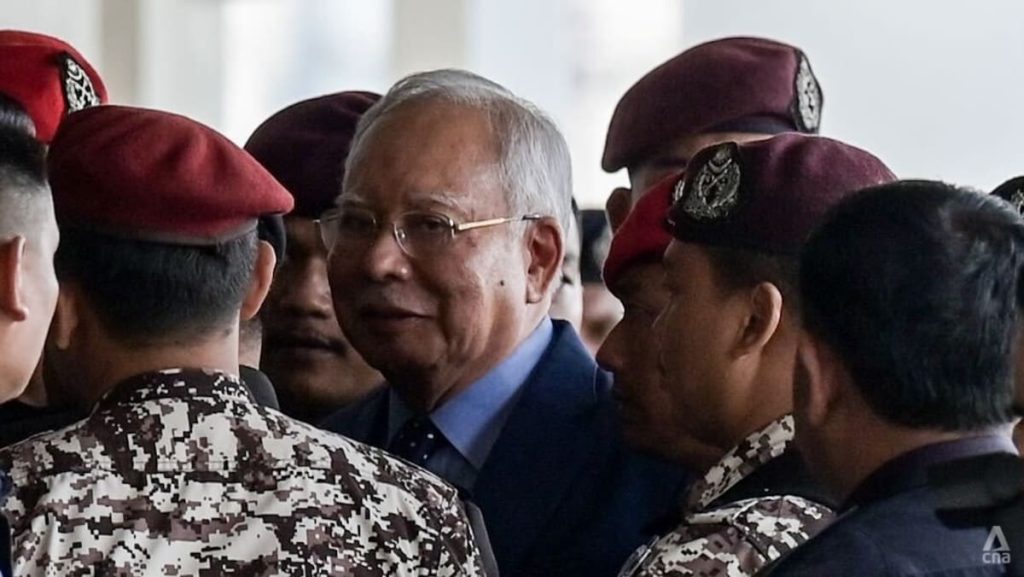THE UNCERTAIN FUTURE OF MALAYSIAN POLITICS: WILL NAJIB RAZAK RISE AGAIN?
The Malaysian political landscape remains shrouded in uncertainty, a breeding ground for dramatic shifts in power and unexpected comebacks. Could Najib Razak, once the nation’s prime minister and now a convicted felon, exploit this volatile environment to orchestrate a return to prominence? The possibility, however improbable it may seem, cannot be discounted. Najib’s past conviction hangs heavy, yet he remains a figure of intrigue, a testament to the often unpredictable nature of political fortunes. Will this uncertainty prove to be his undoing, or the catalyst for a remarkable resurgence? The answer remains elusive, obscured by the swirling mists of political maneuvering and public sentiment.
NAJIB’S STRATEGY: EXPLOITING ECONOMIC ANXIETY AND NOSTALGIA
Najib’s potential comeback strategy hinges on two crucial elements: capitalizing on economic anxieties and tapping into a pervasive sense of nostalgia for a perceived more prosperous past. Amidst stagnant wages, underemployment, and a lack of high-paying jobs, many Malaysians yearn for the economic stability they associate with Najib’s previous tenure. This nostalgia, while perhaps romanticized, represents a powerful political tool. Najib has skillfully nurtured this sentiment, portraying himself as a seasoned economic steward capable of navigating the country through turbulent times. He has consistently criticized the current government’s handling of economic challenges, positioning himself as a more effective alternative. The question remains: will this strategy resonate sufficiently to overcome the shadow of his past conviction? The uncertainty surrounding public opinion leaves the door ajar for a potential Najib resurgence.
THE POWER OF CHAOS: A CATALYST FOR POLITICAL COMEBACKS
History is replete with examples of leaders exploiting chaos and uncertainty to return to power. The yearning for stability and familiarity in times of crisis can propel even disgraced figures back into the political limelight. Najib’s case resonates with this global trend. He understands the power of presenting himself as a beacon of stability in a turbulent environment. His calculated engagement on social media, particularly during the COVID-19 pandemic, allowed him to control the narrative and position himself as a concerned leader. He criticized the government’s pandemic response, further fueling the perception of his competence. This strategic exploitation of uncertainty, coupled with the inherent human desire for familiar leadership during challenging times, creates a potentially fertile ground for Najib’s political rehabilitation.
THE UNPREDICTABLE MALAYSIAN ELECTORATE: A WILD CARD
The ultimate determinant of Najib’s political fate lies with the Malaysian electorate. Public opinion remains a volatile and unpredictable force. While some may view Najib’s conviction as an insurmountable obstacle, others may be swayed by his promises of economic stability and his carefully cultivated image of experience and competence. The economic anxieties gripping the nation could further propel voters towards a familiar figure, even one with a controversial past. This inherent unpredictability of public sentiment underscores the significant uncertainty surrounding Najib’s political future.
THE GLOBAL CONTEXT: A TREND OF NOSTALGIC POLITICS
Najib’s potential comeback is not an isolated phenomenon. Globally, there is a growing trend of voters gravitating towards familiar figures from the past, particularly in times of uncertainty. This nostalgia for a perceived more stable past, whether real or imagined, transcends national borders. The United States’ recent elections serve as a prime example of this trend, highlighting the powerful allure of familiar figures in uncertain times. This global context provides a fertile environment for Najib’s potential resurgence, suggesting that his strategy, however audacious, is not without precedent.
THE UNANSWERED QUESTION: NAJIB’S FINAL ACT OR A NEW BEGINNING?
The question remains: will Najib Razak’s bid for house arrest prove to be his final act on the Malaysian political stage, or will he defy expectations and engineer an improbable comeback? The answer remains shrouded in uncertainty, a product of a volatile political landscape, a nostalgic electorate, and a global trend toward familiar leadership in times of crisis. Only time will tell if Najib can successfully capitalize on these factors to rewrite his political narrative. The Malaysian political stage is set for a dramatic unfolding of events, with Najib’s future hanging precariously in the balance.

